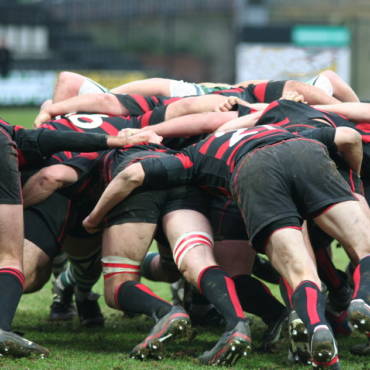Leadership?
Lots of people talk about where leadership in sport is now.
But where did our current thinking on leadership come from? How did leadership in professional sport evolve?
And more importantly, where is leadership in professional sport going?
In the old days, there were no leadership teams or player groups or team representative groups or senior player groups or unity councils…….
In the old days you spelt leadership C.O.A.C.H. The head coach made the decisions, took responsibility for them and that’s where leadership began and ended in professional sporting teams.
Then along came the concept of captaincy and team leadership became shared – to some degree – between coach and captain.
As the demands on team leadership expanded in the professional era and the captain’s role grew to include media management, public appearances and sponsor servicing (as well as on and off field leadership) we started to see the emergence of vice captains and even co-captains to share the leadership load.
Over time, the philosophy of leadership in professional sporting teams evolved into the current popular model of leadership teams.
The leadership team has played an important role in professional sport providing players the opportunity to be more engaged with preparation and performance and to have some real input into the standards, values and practices of the team.
But now we a face a new leadership challenge in sport – it is the era of coaching by collaboration. It is the time where everyone associated with the team – players, coaches, staff and management – everyone – must take full responsibility for every aspect of their own preparation and performance.
Ask yourself, “What’s the long term – what’s the ultimate in leadership in professional sporting teams? Where is all this heading?”
Think about it for a moment and the answer is obvious….it’s leading by not leading.
It is the era where each player has to learn to lead themselves – to train, prepare and compete to their full potential by consistently taking full responsibility and accountability for their own standards, behaviours and performance – on and off field.
In the past, players could be professional during games but then rely on others to set and enforce standards of professionalism in other areas. Players could have some weaknesses in different areas and rely on others in the team to take up the slack….but no more! It is the era of individualised peak performance – there can be no weak links in professional sporting teams.
It is time for everyone involved in the team to ensure that everything they do: on field training, off field training (e.g. gym), social situations, recovery, nutrition, time management, values, sponsor commitments, public appearances and media management is as professional as their actual playing.
Successful professional teams demand the total commitment of individuals, each working to their own optimal individual performance levels to ensure that the team as a whole performs to it’s peak performance potential.
So, as is my custom to ask – what choice will you make?
Will you take a risk, embrace the collaborative coaching – “leading without leading” model and become an innovator in the evolution of leadership in professional sport or will you wait for someone else to do it, copy them and always be behind the cutting edge?
Take a risk – do it now – change the future!
Wayne Goldsmith




2 Comments
Hi Wayne,
thanks for the 10 commandments of coaching guest blog- have had some great feedback on it.
In it you write about being an agent of change- have you read “Lynchpin” by Seth Godin- very much along those lines.
Thanks James.
I like his work. I have also been reading Ken Robinson’s stuff on learning, creativity and education lately and have enjoyed Robinson’s views on “finding your passion”.
Can immediately relate it to sports coaching where coaches should be themselves and coach their own way – that’s the key to success in my book: be yourself, believe in yourself – then coach naturally and uniquely “you”.
All the best with the new site.
WG
Comments are closed.